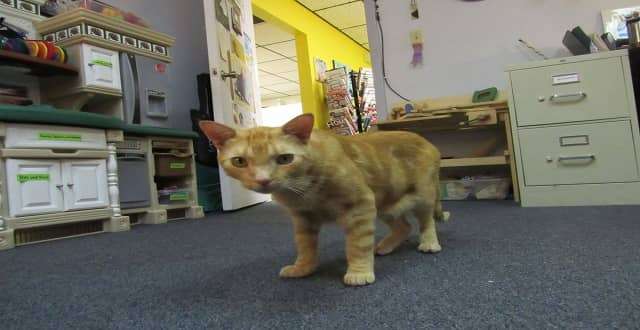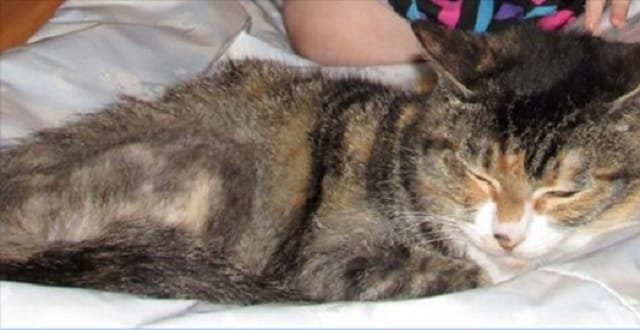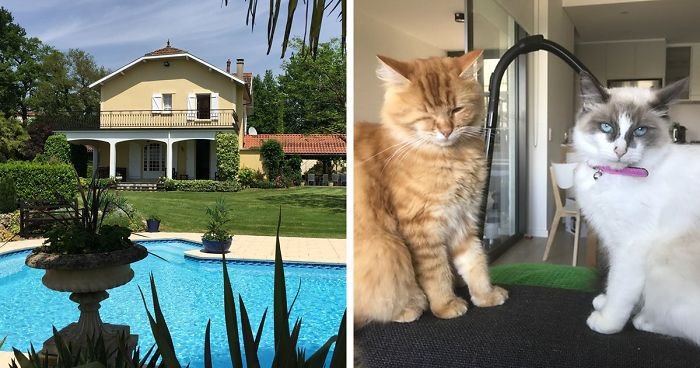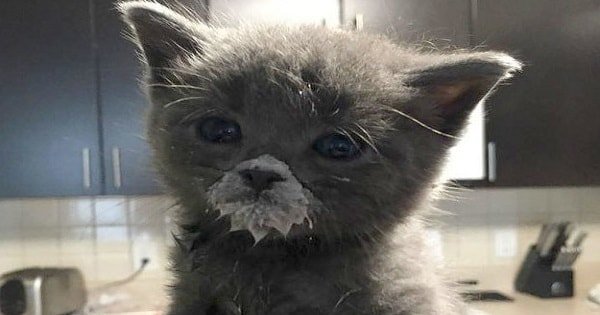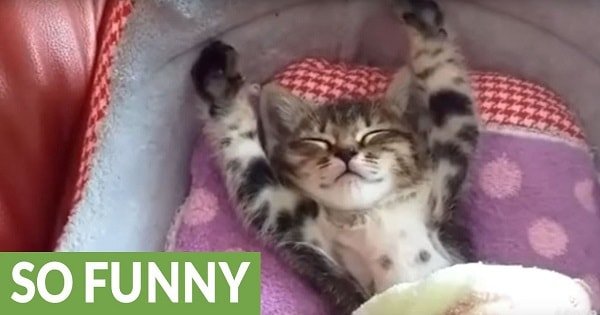FLORIDA - Among the toys, books, crafts and games in the waiting room of the Gainesville Child Advocacy Center, a ginfer cat, whose name is Hank, wanders around, looking for attention and cat treats.
He roams freely around the office and throughout therapy rooms, sometimes sitting in on forensic interviews or napping in a chair in the waiting room. To call him, the therapists simply shake a bag of treats.
And of course, Hank, the “Advo-Cat,” comes running.
“He is just so gentle,” explained Amber Miller, the program developer at the Center for Abused and Neglected Children. “You can roll him onto his back and hold him like a little baby. He’s like the best part of a dog and a cat merged.”
Miller went on to say that therapists introduce Hank to kids who had pets in the past they may have lost contact with. When kids come in for play-therapy appointments and Hank is introduced, therapists find these kids make more progress in treatment.
“We bring him in the room, and they open up so much more,” Miller stated. “It calms them.”
Although predominantly known as “Advo-Cat,” Hank has a variety of names.
“Kids call him Orangey, Mr. Whiskers, Ginger, AC or just cat,” stated SaraNeal Johnston, the lead therapist for the center. “We call him Hank.”
Recently, he visited the Humane Society to be checked for a microchip and to make sure his shots are up to date. A salon located down the road helps care for him, Miller said, and he stays outside to hunt when the advocacy center is closed.
“He’s turned into a community cat,” she stated. “He’s part of all our families now. He’s no longer a stray; he has a home and a name.”
She said that back in June, she went outside the center for lunch, and Hank was sitting in front of the door.
“I knelt down to pet him and he curled up in my lap,” she stated. “Then we didn’t see him again for a while, but eventually he came back, and he comes back every day for the food and the company.”
She went on to add that his laid-back attitude and gentle demeanor work wonders for the kids who come in, even during the busiest parts of the day when the waiting room’s capacity is strained.
“All of our kids have been traumatized in some way, shape, fashion or form,” Johnston noted. “When (Hank) comes in, their whole attitude changes. I think they just sense the unconditional love and acceptance that he — like all animals — brings.”
No matter the situation, she claims, the center provides love and acceptance to the kids they work with.
“When you add Hank to the mix, it just doubles it,” she concluded. “It’s the healing power of the purr.”

